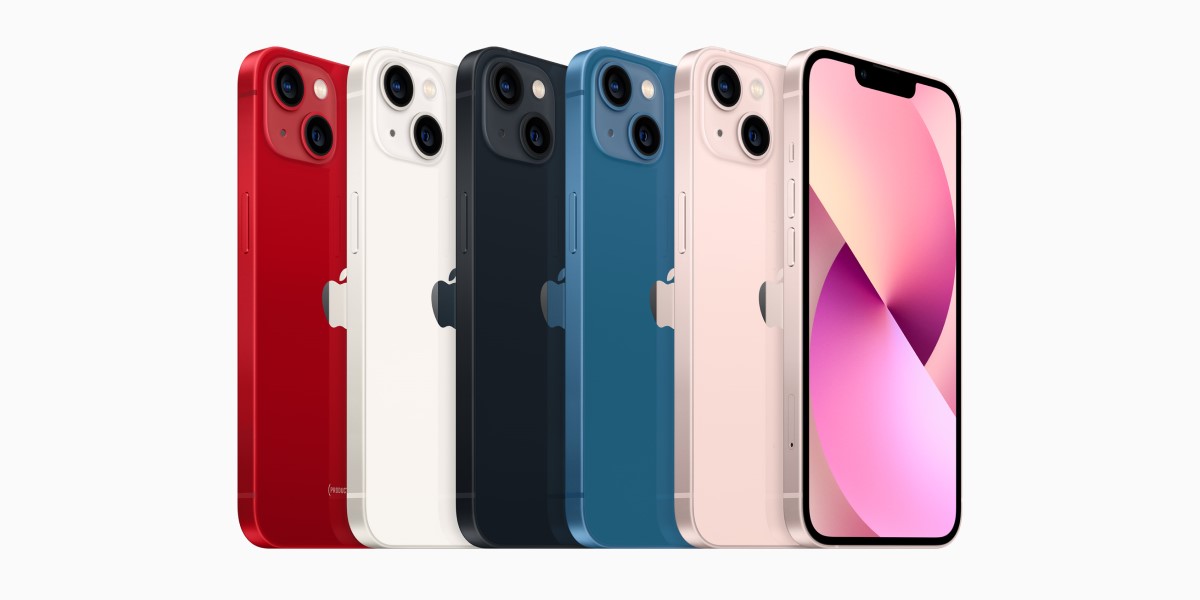UK Court Sides With Optis Cellular Technology In Apple 4G Patent Clash

A UK court has rejected Apple's appeal against a ruling which found it infringed two patents on technology it uses in its world-dominating iPhones and iPads.
London's Court of Appeal ruled against the consumer electronics and computing giant in a dispute over intellectual property, which began in 2019.
Optis Cellular Technology first sued Apple over the way it employed the company's patented technologies, which it said were core to standards including 4G.
The two patents were considered essential for 4G connectivity and were found to be used by Apple's iPhones. Last year London's High Court ruled that two of Optis's 4G patents could be deemed standard essential patents and that Apple had infringed them. Apple's appeal against the decision, which began in May, has now been rejected.
According to the court papers, the patents cover a radio communication device and response signal diffusion and spreading method. Optis argued the patents claim priority from a Japanese filing dated August 13, 2007.
The patents relate to "Long-term evolution" (LTE) 4G. The Physical Uplink Control Channel is used to send two kinds of signal to the base station: one to indicate whether a packet of data previously sent by the base station to the mobile has been accurately received, and the other signals the quality of the downlink channel from the base station as received by the mobile.
- Now Apple takes a bite out of encryption-bypassing 'spy clause' in UK internet law
- Oh, wow. OK. Apple really is making a $3.5K VR ski-mask. Dev tools are now out for it
- Apple squashes kernel bug used by TriangleDB spyware
- Apple stomped all over NYC store workers' union rights, judge rules
The court rejected Apple's argument that Nokia had established "prior art" for the technology in its solution. It also did not recognize Apple's claim for obviousness – whether the invention is "obvious to a person skilled in the art, having regard to any matter which forms part of the state of the art."
In June, the UK High Court ruled that an annual royalty rate of $5.13 million was appropriate for Apple to pay Optis as a global FRAND rate for future use of its patent portfolio under the licence.
UK law firm Pinsent Masons' Mark Marfé said at the time: "The UK is one of only two jurisdictions – the other being China – where the courts will determine a global FRAND rate."
The firm said in a post that: "The decision means that Apple must pay Optis an upfront lump sum of more than $25 million to continue implementing technology patents owned by Optis in devices it manufactures on a global basis."
In summer 2021, a jury in Texas awarded $300 million in damages to Optis Wireless and its constellation of companies, to be paid by Apple because the 4G/LTE tech in its iPhones, iPads, and watches were deemed to have infringed Optis's communications patents.
The ruling followed an initial $506 million award in damages from the Cupertino giant, after which Apple later persuaded District Judge Rodney Gilstrap to order a retrial. ®
From Chip War To Cloud War: The Next Frontier In Global Tech Competition
The global chip war, characterized by intense competition among nations and corporations for supremacy in semiconductor ... Read more
The High Stakes Of Tech Regulation: Security Risks And Market Dynamics
The influence of tech giants in the global economy continues to grow, raising crucial questions about how to balance sec... Read more
The Tyranny Of Instagram Interiors: Why It's Time To Break Free From Algorithm-Driven Aesthetics
Instagram has become a dominant force in shaping interior design trends, offering a seemingly endless stream of inspirat... Read more
The Data Crunch In AI: Strategies For Sustainability
Exploring solutions to the imminent exhaustion of internet data for AI training.As the artificial intelligence (AI) indu... Read more
Google Abandons Four-Year Effort To Remove Cookies From Chrome Browser
After four years of dedicated effort, Google has decided to abandon its plan to remove third-party cookies from its Chro... Read more
LinkedIn Embraces AI And Gamification To Drive User Engagement And Revenue
In an effort to tackle slowing revenue growth and enhance user engagement, LinkedIn is turning to artificial intelligenc... Read more

